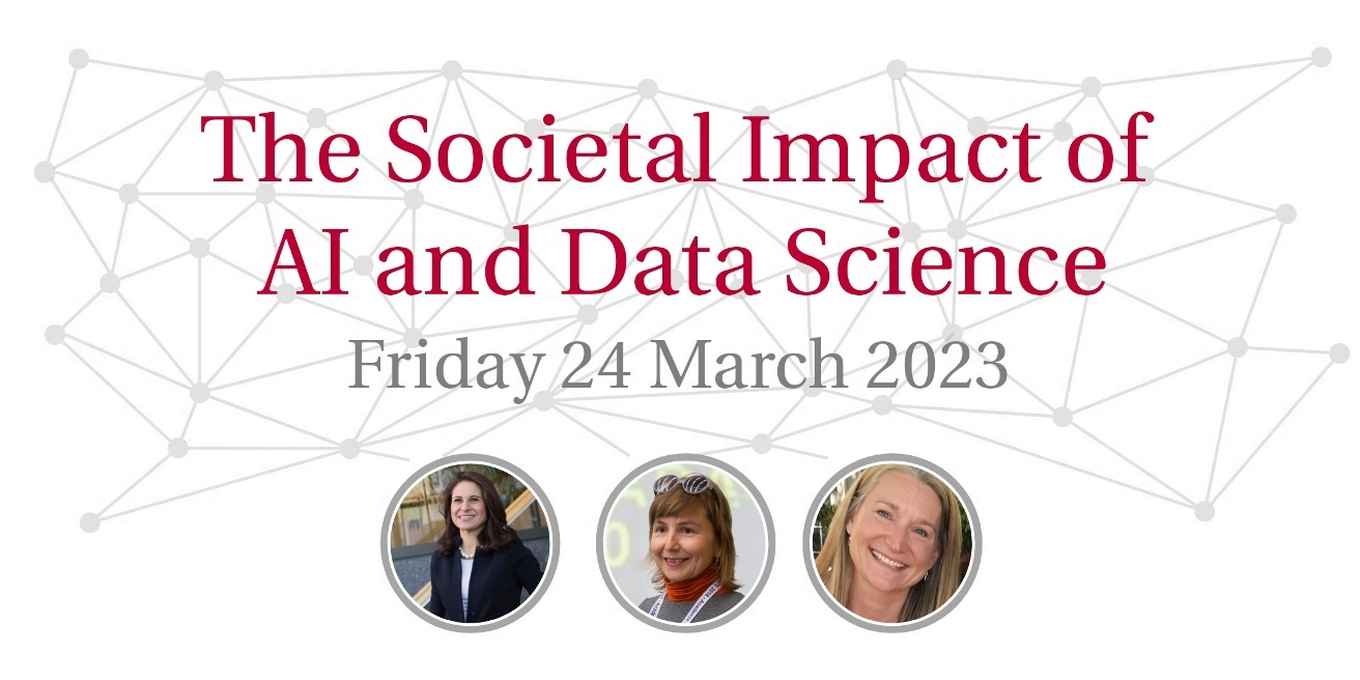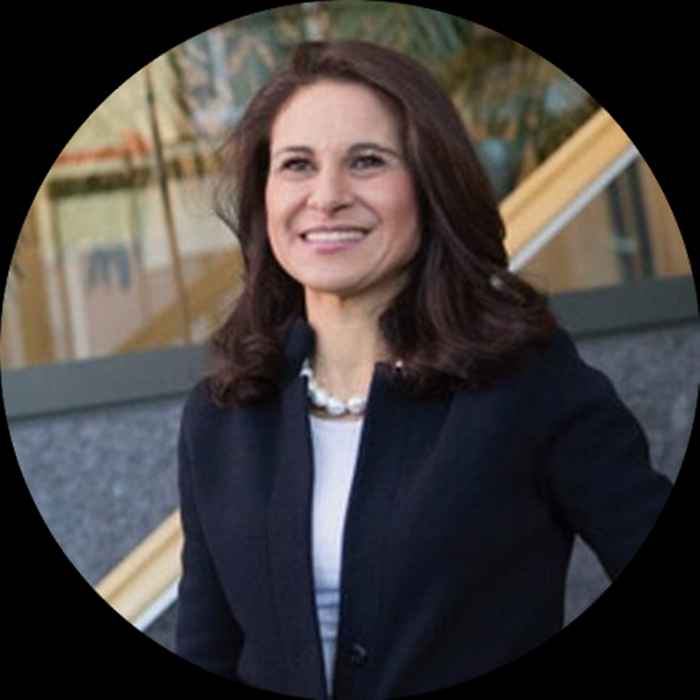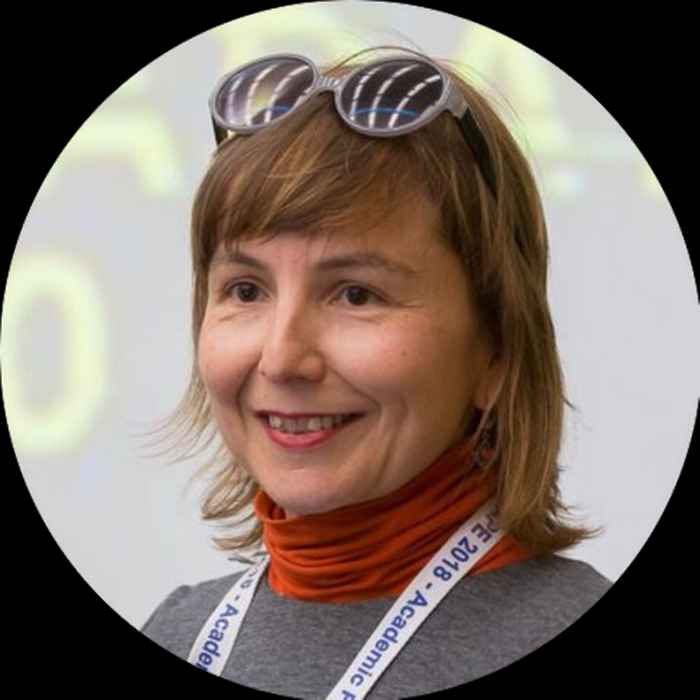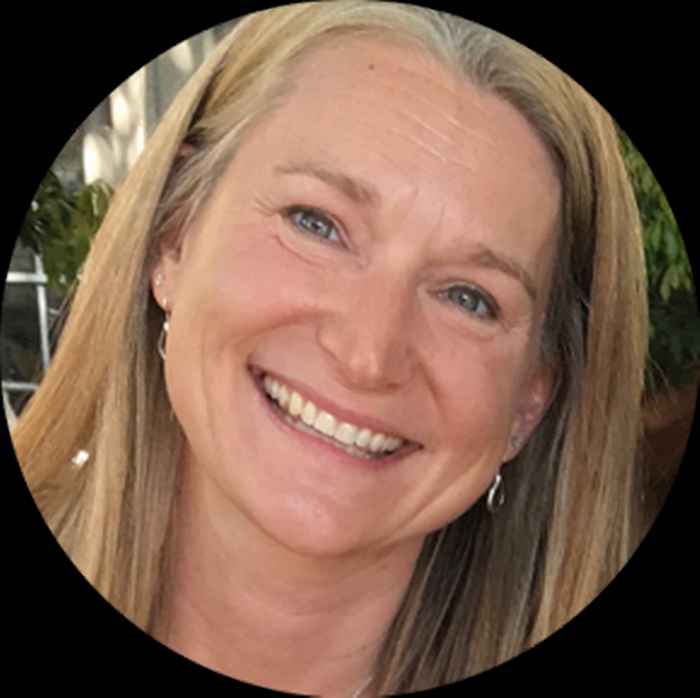The Societal Impact of AI & Data Science
- Date
- 24 March 2023
- Time
- 10:00 -12:30

The UvA Data Science Centre (DSC), part of the University Library, is excited to host this event on how innovations in data science and AI can improve our world.
Prof. Francesca Dominici, (Harvard T.H. Chan School of Public Health), Prof. Eva Méndez, (Universidad Carlos III de Madrid (UC3M)), and Dr. Micaela Parker (Academic Data Science Alliance (ADSA), United States) will be in Amsterdam to share their insights on some of the latest developments in data science. The speakers are all members of the UvA Data Science Centre International Advisory Board.
Presentations will be concluded with a panel discussion and Q&A, moderated by Dr. Tessa Blanken, Postdoctoral Researcher, Psychological Methods Department UvA

Speaker 1: Prof. Francesca Dominici
How much evidence do you need? Data Science to Inform Environmental Policy During the COVID-19 Pandemic
This presentation will provide an overview of data science methods, including methods for Bayesian analysis, causal inference, and machine learning, to inform environmental policy. This is based on Francesca’s work analyzing a data platform of unprecedented size and representativeness. The platform includes more than 500 million observations on the health experience of over 95% of the US population older than 65 years old linked to air pollution exposure and several confounders. Finally, the presentation will provide an overview of studies on air pollution exposure, environmental racism, wildfires, and how they also can exacerbate the vulnerability to COVID-19.
About the speaker
Director of the Harvard Data Science Initiative, at Harvard University and the Clarence James Gamble Professor of Biostatistics, Population and Data Science at the Harvard T.H. Chan School of Public Health.
Francesca Dominici is an elected member of the National Academy of Medicine and of the International Society of Mathematical Statistics. She leads an interdisciplinary group of scientists with the ultimate goal of addressing important questions in environmental health science, climate change, and health policy. Francesca has provided the scientific community and policy makers with robust evidence on the adverse health effects of air pollution, noise pollution, and climate change. Her studies have directly and routinely impacted air quality policy. Francesca has published more than 220 peer-reviewed publications and was recognized in Thomson Reuter’s 2019 list of the most highly cited researchers – ranking in the top 1% of cited scientists in her field. Her work has been covered by the New York Times, Los Angeles Times, BBC, the Guardian, CNN, and NPR. In April 2020, she was awarded the Karl E. Peace Award for Outstanding Statistical Contributions for the Betterment of Society by the American Statistical Association. Francesca is an advocate for the career advancement of women faculty. Her work on the Johns Hopkins University Committee on the Status of Women earned her the campus Diversity Recognition Award in 2009. At the T.H. Chan School of Public Health, she has led the Committee for the Advancement of Women Faculty.

Speaker 2: Prof. Eva Méndez
Advancing on Research Assessment: the role of research data in a new evaluation landscape
The current science and research evaluation is absolutely "paper-centric" and based on the Journal Impact Factor. To really advance in a new research assessment we need to evaluate other research outputs and contributions like research data. This presentation will cover the status quo of the CoARA (CoAlition for Advancing Research Assessment) and the steps over an integrated evaluation of research performance including research data and FAIRness as a proxy for new evaluation and career paths.
About the speaker
Deputy Vice-President for Research Policy and Open Science, and Professor at the Library and Information Science at the Universidad Carlos III de Madrid (UC3M).
Eva Méndez holds a PhD in Library and Information Sciences (LIS) and is an expert in metadata. Eva has been a lecturer at Universidad Carlos III de Madrid (UC3M), LIS department since 1997. She has been an active member of several international research teams, advisory boards and communities including: DCMI, OpenAire, Metadata2020, RDA, etc. In 2005-06, Eva was awarded a Fulbright Research Scholarship at the University of North Carolina at Chapel Hill (USA). She has taken part in and led several research projects and acted as advisor to many more in the fields related with standardization, metadata, semantic web, open data, digital repositories and libraries, in addition to information and research policies in several countries. In 2015 Eva won the Young Researcher of Excellence award of her University. In November 2017 she was named “Open Data Champion” by SPARC Europe. She is currently Deputy Vice President for Scientific Policy-Open Science at UC3M and she was the chair of the EU-OSPP (European Open Science Policy Platform) on behalf of YERUN (Young European Research Universities Network).

Speaker 3: Dr. Micaela Parker
The Ethos Lifecycle: Operationalizing ethics in data science
The data science lifecycle model is a ubiquitous framework for describing the stages of research in a typical data science project. While helpful for illustrating parts of the research process, lifecycle workflows almost universally omit ethical considerations and societal contexts. By abstracting away the broader societal contexts, these lifecycle models do not adequately capture the way in which data scientists think, and the kinds of questions they must address while doing real world data science work. The Data Science Ethos Lifecycle addresses this need for a data science framework that includes explicit societal contexts and makes questions of social good actionable. The result is a more true-to-life model of the data science lifecycle that shows how societal questions are a constitutive part of the day-to-day work of a data scientist.
About the speaker
Founder and Executive Director at the Academic Data Science Alliance.
Micaela Parker is the Founder and Executive Director of the Academic Data Science Alliance (ADSA), a community organization for data science leaders, practitioners, and educators who build and share resources for responsible data science in higher education. Before launching ADSA, Parker worked for the Moore-Sloan Data Science Environments and was an Executive Director for the University of Washington’s eScience Institute. At the eScience Institute, she developed data science research and training programs, and participated in strategic planning and fiscal oversight. Based on her many years of experience, Parker now offers consulting for emerging data science initiatives in academia. Prior to her entry into data science, Parker was a research scientist for over 10 years in the University of Washington's School of Oceanography where she managed the Center for Human Health and Ocean Studies. She has been involved in many large, interdisciplinary projects bridging oceanography and genomics. She continues to hold the title of eScience Data Science Fellow, and she is a Research Scholar with the Ronin Institute for Independent Scholarship.
Time and location
Date: Friday 24 March 2023
Time: 10:00 – 12:30 (doors open at 09:30)
Format: In-person only
Location: Het Trippenhuis, Kloveniersburgwal 29, Amsterdam (Google Maps link)
Registration is free and everyone (UvA and non-UvA) is welcome to join!